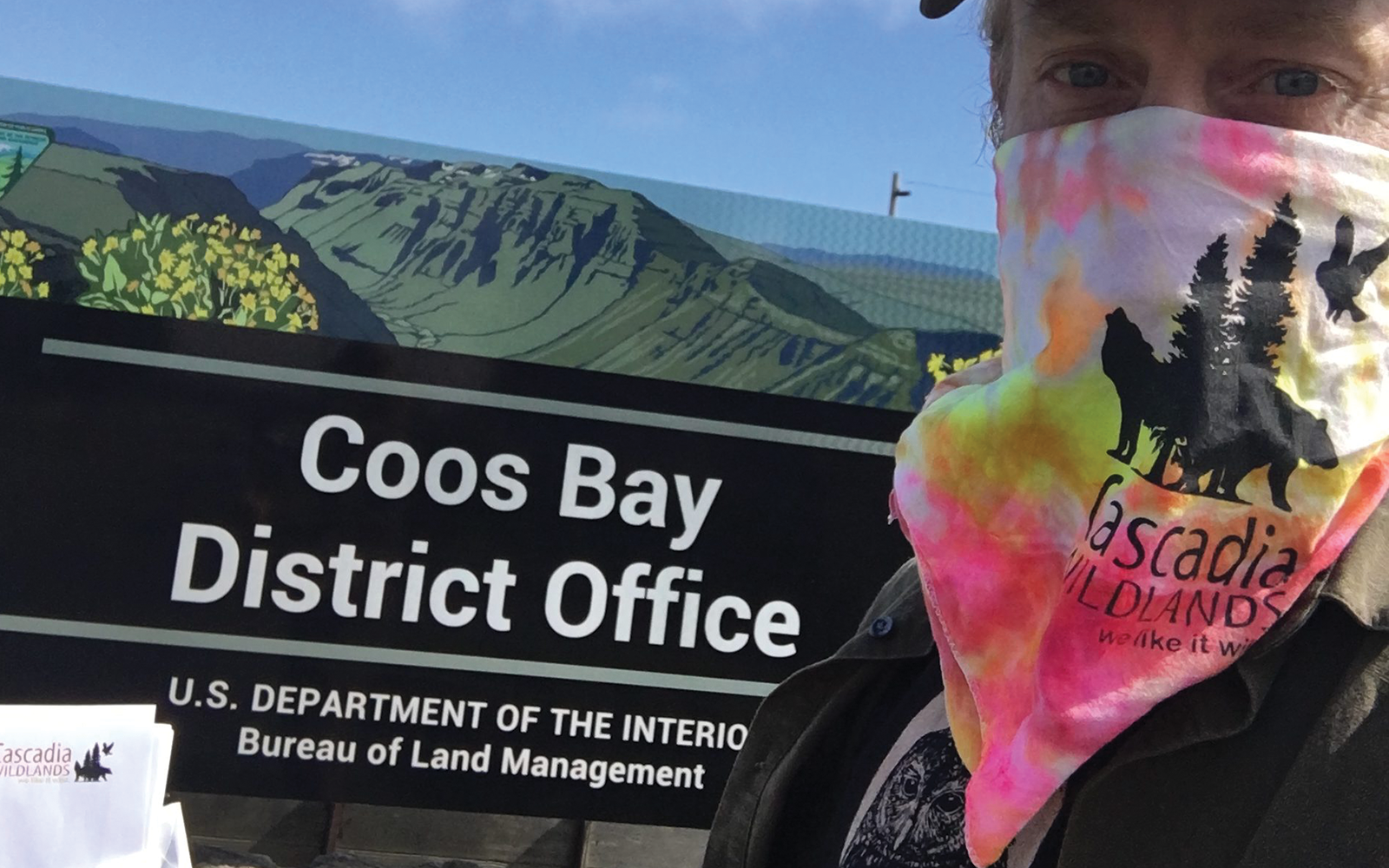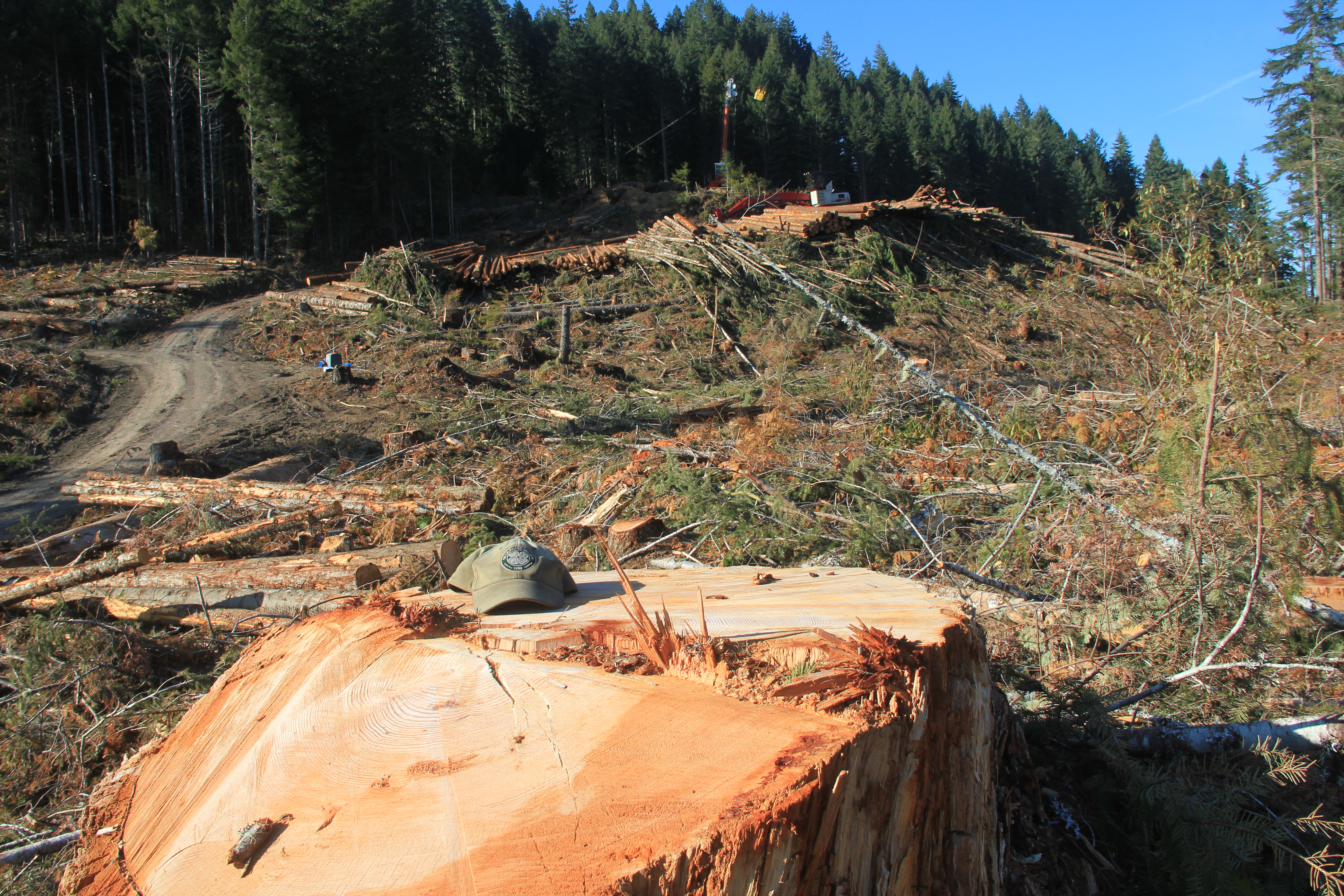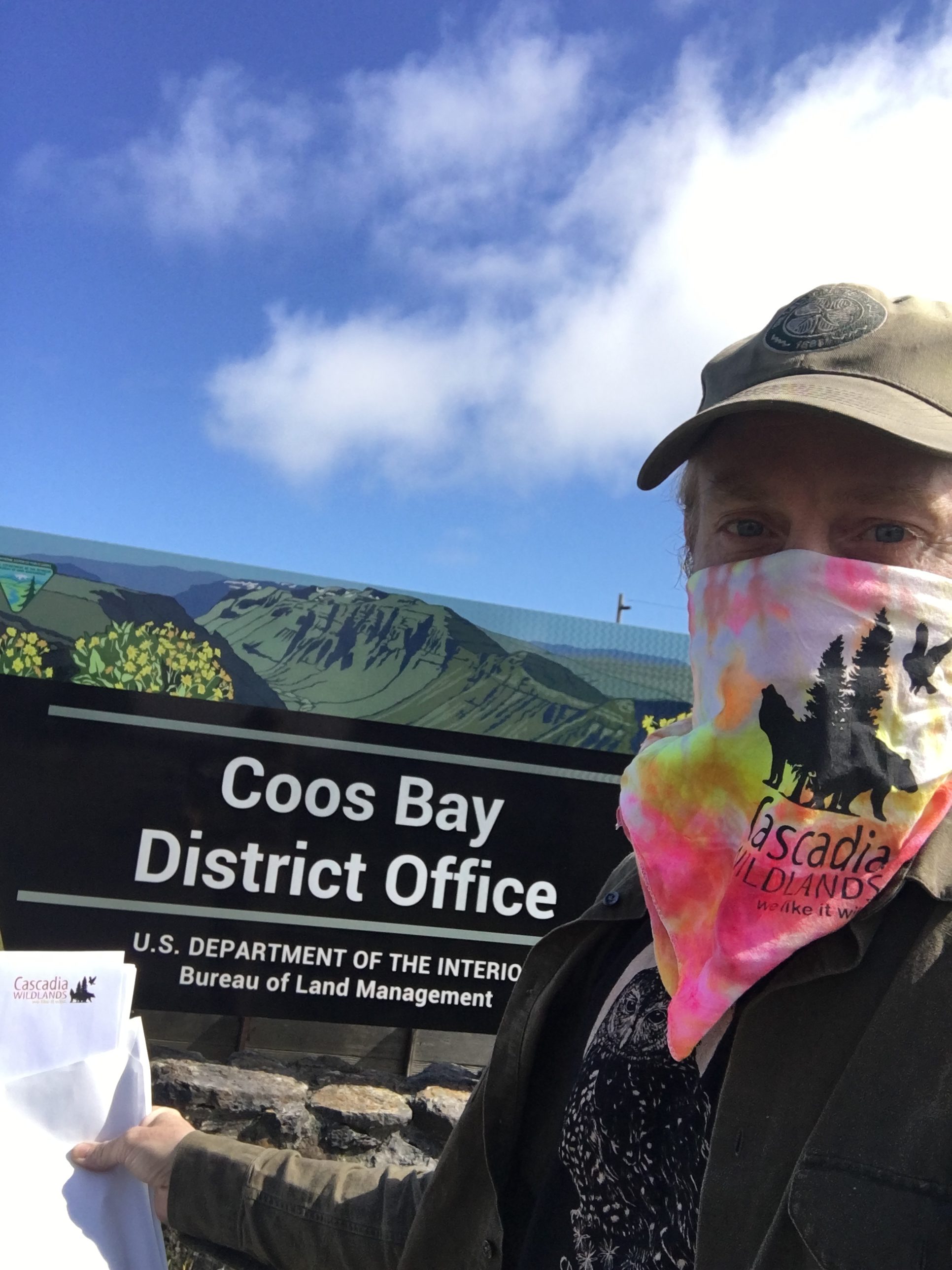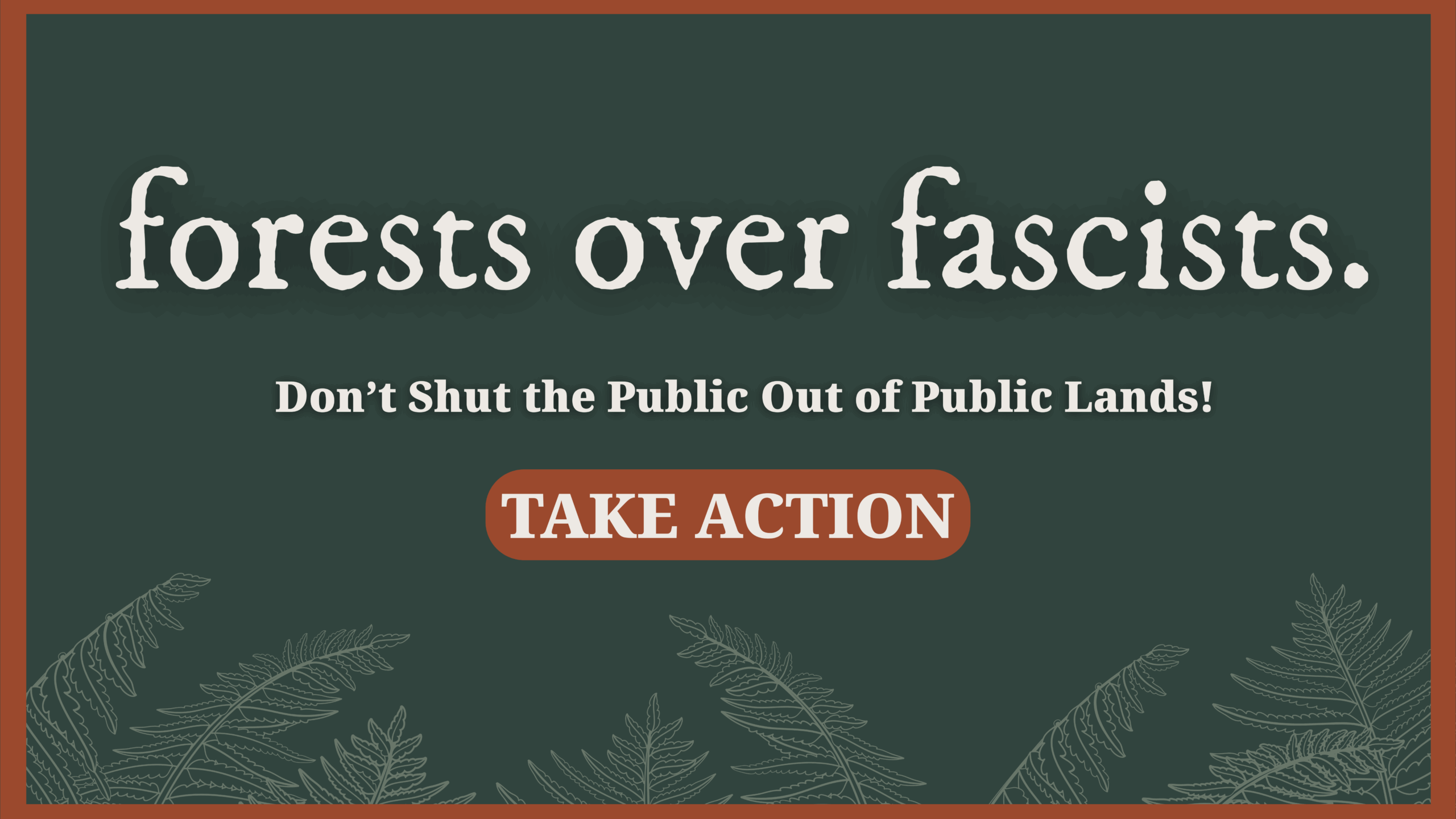By Gabe Scott
Cascadia Wildlands In-house Counsel
We’ve been keeping our eyes on the forests during the Pandemic. The crisis and response is revealing hidden priorities, shifting alliances, and revealing inequities. The public land agencies, the Forest Service and BLM, and the State governments, have been closing recreation, canceling restoration, and moving forward with logging projects. The basic grassroots work of forest monitoring has never been more important.
Priorities Laid Bare
The disparity between recreation and restoration on the one hand, and resource exploitation like logging on the other, is striking. In our area of Western Oregon, all of the controversial timber sale projects are going forward, even as trailheads, campgrounds, parks and waterways are broadly closed to public access. Restoration projects and prescribed burning to reduce wildfire danger are also on hold.
The timber industry, on the other hand, has sacrificed nothing and is receiving special treatment to boost their bottom line. BLM and USFS staff telecommute to keep logging projects running, granting exceptions to environmental rules, and pouring more native forests into the timber pipeline. The BLM went so far as to issue a press release bragging about how much timber it had sold during the Pandemic.
Here is a quick run-down of what we’ve seen recently in the forests of Western Oregon:
Rock Creek
On the coast range, the Coos Bay BLM district has projects in all the phases of development.
We passed active yarding in this unit on Kenyon Mountain, part of the BLM’s Rock Creek project, on April 8, while scouting a nearby project slated for auction. It is incredible and dismaying that, in the year 2020, during a global Pandemic, we are still clearcutting old-growth on public land in the Oregon coast range. I count 205 rings on this stump, one of many old-growth trees cut in the area.
While forests fall at Kenyon Mountain, the BLM announced its decision to auction off another 84-acre cut on the Upper Rock Creek Project, just up the road.
This forest is the kind of forest grove that is especially sad to find when field checking. Oregon, especially the coast range, is at its best in this kind of small-featured beauty. There aren’t documented spotted owl nests that are legally protected, or towering waterfalls to support a busy trailhead. It is *merely* a beautiful, diverse natural grove of healthy mature trees that is full of life. If we loved the world better, these are the kinds of forests we could save.
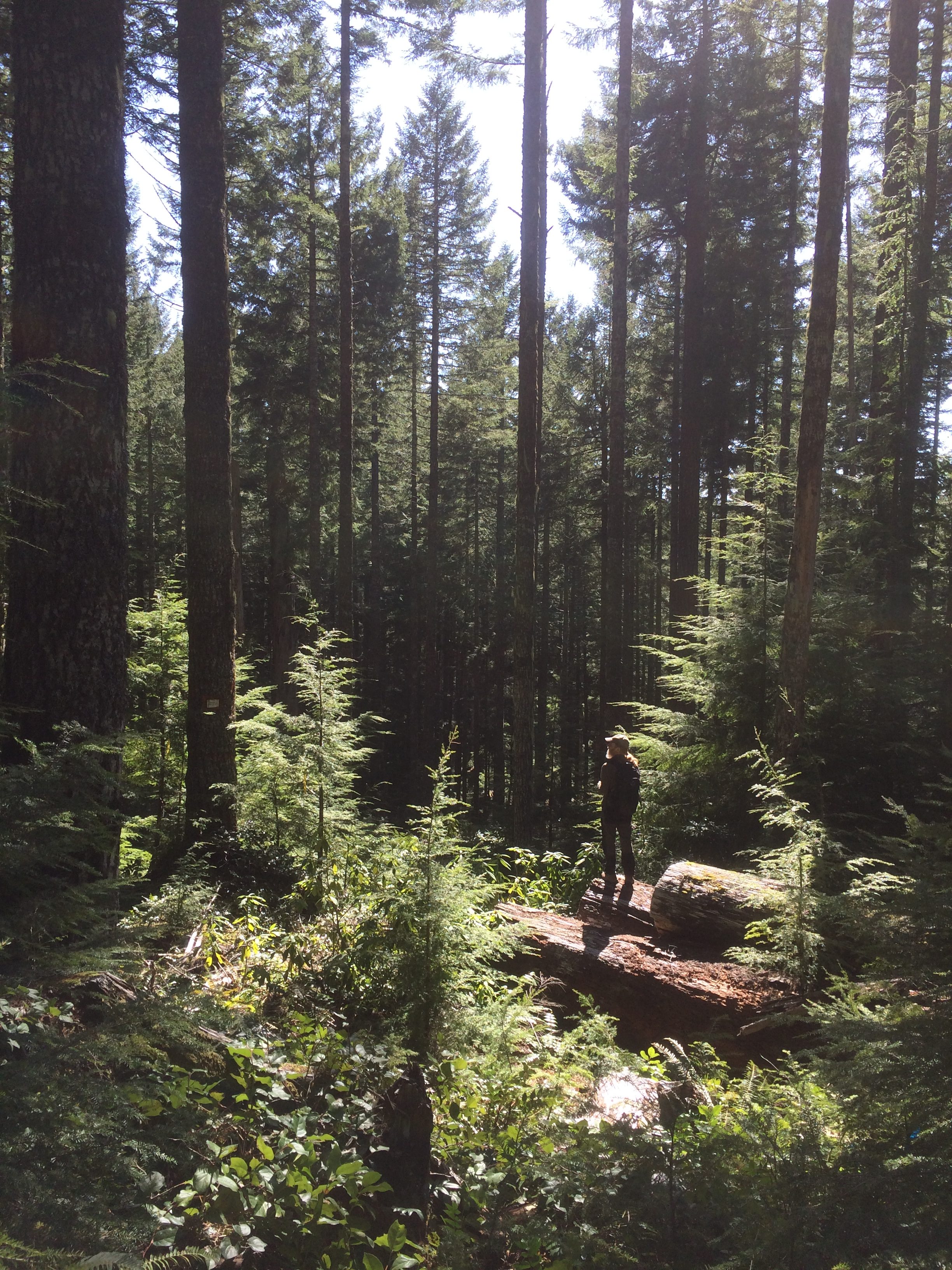 Cascadia filed a legal Protest of that sale decision. Among other objections, we are crying foul at the agency’s total failure to address the implications of the Pandemic and logging. With restoration canceled, would the planned mitigation still take place? How can the public and expert processes take place when offices are closed? Are workers safe? Does anyone at the Federal government even care?
Cascadia filed a legal Protest of that sale decision. Among other objections, we are crying foul at the agency’s total failure to address the implications of the Pandemic and logging. With restoration canceled, would the planned mitigation still take place? How can the public and expert processes take place when offices are closed? Are workers safe? Does anyone at the Federal government even care?
Typical of their byzantine procedures, even now BLM refuses to accept email protests. Never mind that those same offices are closed to the public. So we masked up and hand-delivered the Upper Rock Divide Protest.
Thurston Hills – Destroying backyard forests, increasing fire danger
At Thurston Hills at the edge of Springfield, the BLM is still going forward with the Pedal Power timber sale. Just off of 79th street and the Willamalane natural trails, these are exactly the kinds of under appreciated backyard forests that are proving their value during the lock-down.
The recreation and fire safety benefits of the forest there are more important now than ever. The proposed clearcutting would create “high” fire hazard to the neighborhood and make things that much more dangerous for residents and firefighters. Both BLM and Seneca have obstinately refused to consider thinning alternatives, which we support.
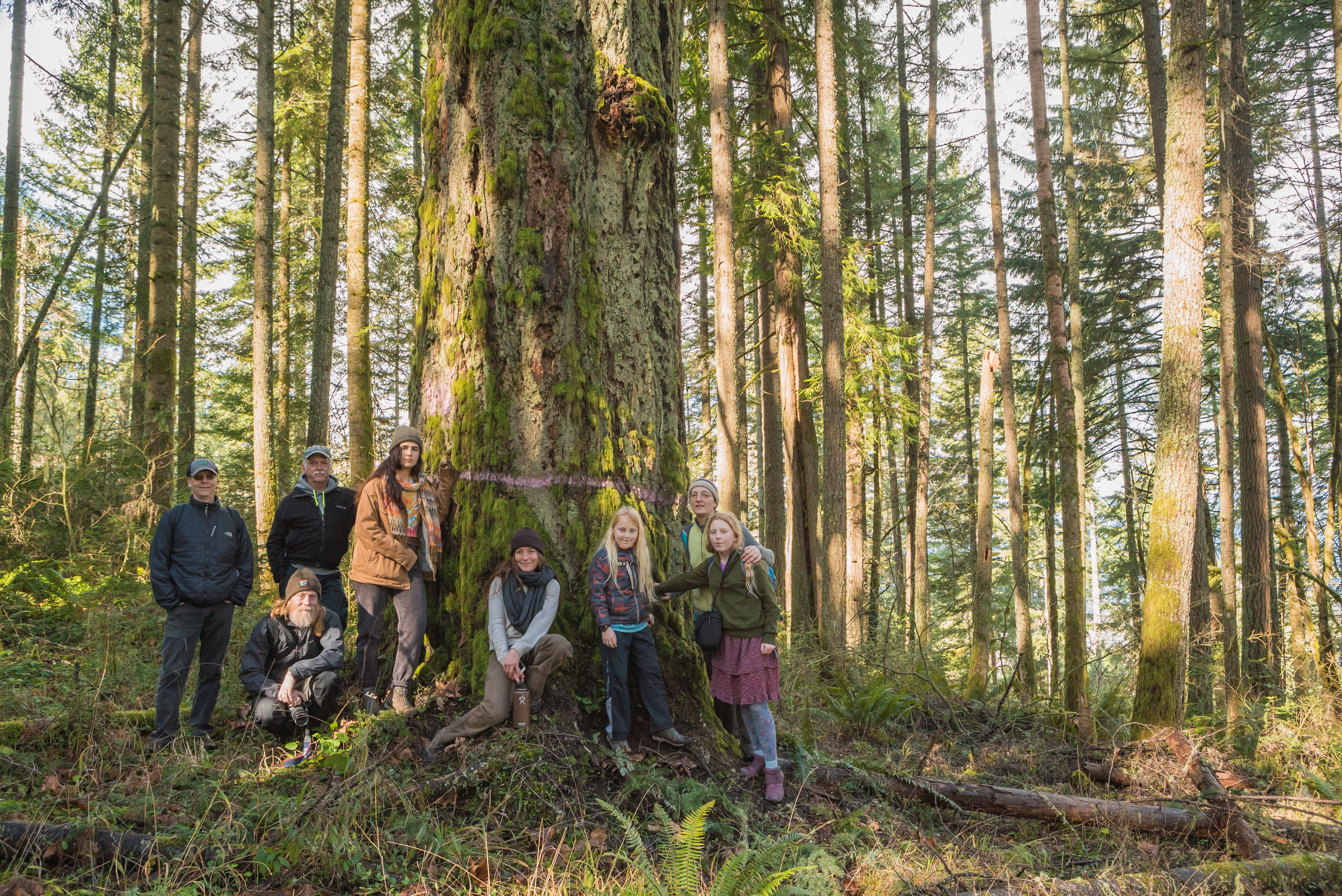
Group of WildCAT volunteers field checking the Thurston Hills timber sale (photo by Cascadia Wildlands).
While the agency has not made a decision, the sale is still under contract to Seneca and every indication is it is on the fast-track to be clearcut. The neighboring recreational trails may be closed, but the logging roads in the timber sale area are grubbed out and trees marked to log (photo below). 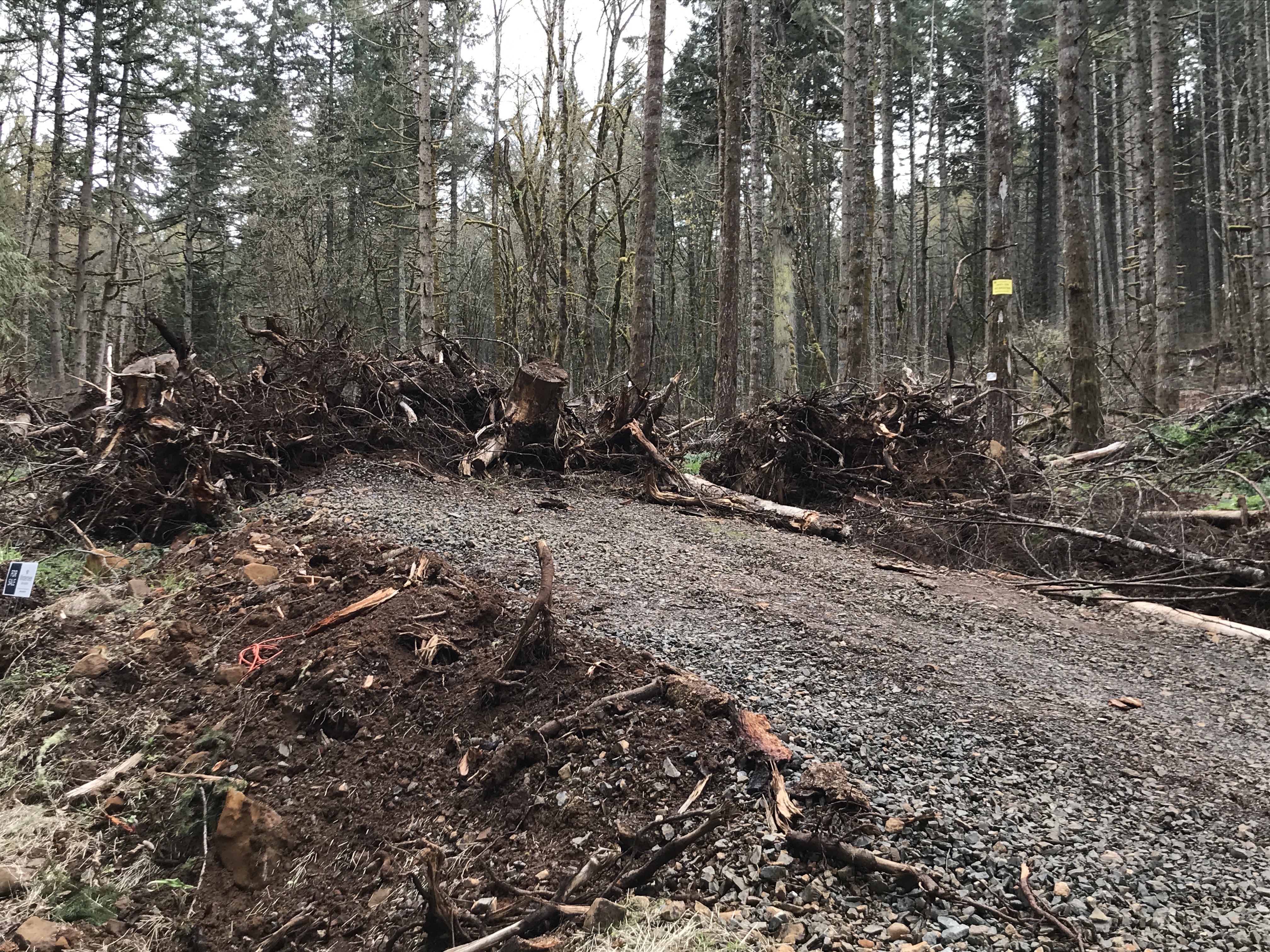
Our volunteers have been keeping close tabs on this project, and we are not about to let industry take advantage of the Pandemic to log it.
> > > You can take action to stop the Thurston Hills project HERE.
Poor Windy
In southwest Oregon, the Medford BLM thinks their timber sales are “mission critical” and have insisted on charging forward. The Poor Windy project is a large and especially terrible sale that would log old-growth west of I-5 and south of Canyonville.
Cascadia joined Klamath-Siskiyou Wildlands Center and Oregon Wild in filing a legal Protest of the “Blown Fortune” project. At times like these, we have been grateful to work with so many other wonderful, local grassroots organizations.
Showing the recent pattern, that timber sale auction on April 21 did not draw any bids. “The BLM seems committed to meeting arbitrary volume targets regardless of whether anyone wants the timber or not,” George Sexton of our close friends at K-S Wild, told the local newspaper.
Mission Critical?
The timber industry touts itself as an “essential” industry and the BLM thinks selling old-growth timber is “mission critical,” but a closer look shows that is mostly bluster. Timber is no more important than anything, and in fact mills have been closing down due to “severe oversupply.” Local leaders have options, if they want to use them.
Shortly after the National Emergency was declared, the CISA Guidance designated “essential” workers and industries. These are those “who conduct a range of operations and services that are essential to continued critical infrastructure viability,” and so ought to try and remain operating.
On the list, under the heading “food and agriculture” is the bullet “Workers who support the manufacture and distribution of forest products, including, but not limited to timber, paper, and other wood products.” But, exactly what is critical about the logging industry is left open to interpretation. Industry press put out their spin in the immediate aftermath, pointing out that new hospitals would be made of wood.
You might assume that public agencies would use health-related logic, but that assumption would be incorrect. As the Medford BLM manager explained in an email, they think BLM’s timber program is “mission critical” because logging results in jobs.
Why logging jobs are any more important than other jobs is a mystery.
Mill closures cause real pain to real people. Despite a generation of job-killing automation and exports, mill jobs remain truly central in many rural communities. So, if mill jobs are important (and they are!), then keeping mills open and small operators in business is what matters. Generating massive amounts of bargain-priced logs does not.
Supplies of logs are not where the supply chain is limited. Mills are operating right now on a “severe oversupply.” Many have scaled back or closed altogether.
A closer reading reveals that the Homeland Security designation shows it is only a recommendation. Our Governors have a lot of leeway to make their own priorities. The Homeland Security advisory reads:
“Accordingly, this list is advisory in nature. It is not, nor should it be considered to be, a federal directive or standard in and of itself.”
“Instead, State and local officials should use their own judgment in using their authorities and issuing implementation directives and guidance. … All decisions should appropriately balance public safety while ensuring the continued delivery of critical infrastructure services and functions.”
A better world is possible
As our Grassroots Organizer, Sam Krop argues in her brilliant op-ed, “What is really essential,” a better way is possible.
To that end we are rallying behind this Petition, directed to the western state (Cascadia) governors, demanding that Pandemic strategies prioritize natural and human health, not corporate profits.

